
Don't start nothin', won't be nothin'!
If Godzilla is King of the Kaiju, Mothra is the Queen. Lighter in tone than Godzilla (1954), yet still with a message of caring for the Earth and cooperation, Mothra carved out her own story.The synopsis tells most of the story. An unscrupulous relic plunderer kidnapped the Shobijin after an expedition to an island in a nuclear testing zone. The tiny twins had been befriended on their island by a reporter and a linguist who attempted to come to their aid in Tokyo. The Shobijin tried to warn them that Mothra would be coming for them and anyone in her way would be in great danger. Their pleading left the dastardly villain unaffected only causing him to double down on his efforts to keep the fairy priestesses to himself for his own profit.
Unlike Godzilla, who came to town obliterating buildings for seemingly no reason, Mothra was on a rescue mission. She arrived in her caterpillar form before transforming into her beautiful self. Tokyo and a major city in Rolisica (an amalgam of Russia and the US) took the brunt of her actions as she searched for her besties.
Mothra had one of the strongest casts in Kaiju filmdom. It's a good thing there was a strong cast as Mothra doesn't show up until over halfway through the movie. Koizumi Hiroshi who appeared in many Godzilla movies played the good-hearted linguist Dr. Chujo Shinichi. Kagawa Kyoko, from Tokyo Story, was the fearless photographer who worked with intrepid reporter, Bulldog, well played by Frankie Sakai. Hirata Akihiko from the original Godzilla made a welcome appearance. Shimura Takashi who starred in several Kurosawa movies, was the cranky news boss. Finally, the idols from their time, The Peanuts, twin sisters Emi and Yumi, brought the kind fairies to life. Their song "Mosura" woke their giant protector telepathically calling her to them.
Though there was destruction of buildings and cars, and the requisite helicopter blowing up, unlike in Godzilla, humans are not shown being killed. Mothra's story is gentler for a mass destruction movie as much of an oxymoron as that is. Song and dance numbers, a child looking to protect the Shobijin, and a big, beautiful monster made this movie more kid friendly, a direction Toho would continue to take the movies in, especially the Mothra movies as she evolved into a heroine.
The miniatures and Mothra were obvious toys, some more intricate and carefully created than others, but this was 1961 and viewers' imaginations played a big role in the success of these movies. I enjoyed Mosura, a somewhat slow-paced monster movie about a giant Moth stopping at nothing to save her friends.
21 February 2022
Was this review helpful to you?
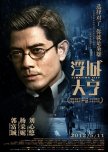
This review may contain spoilers
Floating City takes place over several decades culminating in the end of the British rule over Hong Kong. Based on a true story the film focuses on Bo Wah Chuen, a man of mixed races and cultures, never fully accepted by any of them. Despite his humble up-bringing he manages to rise in stature and power.Born to a Chinese mother, with a Caucasian father, and adopted by a poor Tanka fishing family, the Brits name Bo "Half Breed" and the Chinese call him "Mixed". Though he carries a British passport he finds out that he's not really British either. The story begins near the end so we know he succeeds but we also know as movie viewers that the climb will not be an easy one. Much of his youth is faced with helping his family survive and dealing with tragedies as they come. With the help of a priest, he enters school though he is older than the other students. Education opens his eyes to other possibilities, and he rebels against his father and the fishing life he is supposed to inherit. He discovers that the way out of his barefoot poverty and at times perilous existence is to find a job with the Imperial East India Company which runs much of Hong Kong. As a Chinese man his route is not without challenges, his inability to speak English has to be overcome and he's daily confronted by the limits of deeply ingrained racism.
Aaron Kwok gave a quiet performance as a conflicted man who was not sure who he is. Sometime too quiet. I found his character too enigmatic and unemotional in his relationships and struggles. Josie Ho who played Bo's mother in her younger years and Bau Hei Jing who played Bo's older mother both gave compelling performances as a woman who had to make heart-wrenching decisions through the decades for the family if it meant keeping them alive. Charlie Yeung as Bo's wife was given little to do. The heart of this story was between Bo and his tenaciously loyal adoptive mother.
Floating City flies over the complex issues giving us a nice overview of the problems in Hong Kong, but without connecting us emotionally with the tumult and cultural conflicts inherent in a place, and man, caught between two powers. It hints at a depth it is unwilling to dive into only skimming the surface as many of the performances do.
I wanted to like Floating City more than I did. It revealed parts of Hong Kong history not always covered in cinema but at times felt more educational than entertaining. That's not to say there weren't some deeply touching moments in it, I just felt it missed some opportunities to connect more with the audience. If you enjoy family stories and rags to riches stories, this is a movie you might want to check out.
Was this review helpful to you?
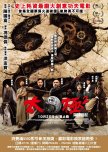
This review may contain spoilers
From Zero to, well, maybe a 4 or 5
Tai Chi Hero took up where Tai Chi Zero left off and promptly slid downhill from there. The gang was all back and added William Feng Shao Feng and Peter Stormare to try and shake things up a little.Yang Lu Chan (Jayden Yuan) and Chen Yu Niang (Angelababy) were in the middle of their nuptials when her ne'er do well brother, Chen Zai Yang (William Feng), showed up spoiling the mood. Fang Zi Jing (Eddie Peng) who was soundly beaten in the previous movie returned plotting revenge with some help from Duke Fleming (Peter Stormare) of the British East India Company.
That set-up sounds boring and unfortunately for me, this movie lacked the zaniness of Tai Chi Zero. Grandmaster Chen Chang Xing's (Tony Leung Ka Fai) character was developed more while he worked things through with his estranged son. Tony Leung Ka Fai did his best as the master of martial arts who had to come to grips with the mistakes he made with his child. The two main characters, Lu Chan and Yu Niang were stuck in much the same place without any conflict which drained the energy out of their scenes. Poor Jayden, a real-life martial arts champion, was unable to convey more than one perplexed expression. Unsurprisingly, there was no chemistry between he and Angelababy. The film focused more on the Grandmaster and his estranged son, possibly out of necessity.
Tai Chi Hero lacked a definitive villain, Zi Jing wasn't sinister or competent enough or engaged in the story enough to be much of a threat. Eddie Peng wasn't able to overcome the caricature and corner his character had been written into.
The story spent time flashing back to try and build the characters' and story's background but in the present time there was no urgency or significant development. There was no high stakes battle at the end. In fact, the ending felt rushed, too easily wrapped up, and anti-climactic.
There weren't as many fights or as inspired fights this time around. Lu Chan was trained by his wife and father-in-law which was to set him up to become the super Tai Chi Master but was lackluster as a viewing experience. The one grand battle was sped up and blurred which always seems like a cheat in a martial arts movie with a real martial artist in it.
The steampunk, pop-ups, and comic book style wackiness were largely gone in this sequel. Tai Chi Zero wasn't empirically a good movie, but it was a fun movie. Tai Chi Hero took much of the fun out, tried to replace it with heart, which ended up feeling more like hot air. I'd still recommend it to people who watched the two previous movies, even though this one limped across the finish line.
Was this review helpful to you?
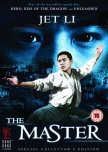
The Master was a failure on multiple fronts. The acting both from the Asian cast and the American cast was atrocious. Yuen's performance was at least interesting. Jet Li's try at comedy fell flat and I'll never understand why they kept that Timmy Turner baseball hat glued to his head during his fights. The American cast was at a high school play level at best.
The production values were bottom of the barrel. You could even see the mats in one shot where they were supposed to fall. Tsui Hark, the director, probably wishes he could take this one back.
The side characters were a mixed bag. There was a possible romance with a banker, Crystal Kwok, but she seemed way more into Jet Li's character than he was into hers. Three Latino gangsters became his unwanted disciples. And Yuen Wah had a blonde gymnast as one of his few remaining students. Most of these characters were around for comic relief and I use that term lightly.
The fights were okay, but not terribly inspired. Jet Li injured his wrist in filming which meant they had to work around it for the final fight scenes. Jerry Trimble and Jet Li made good sparring partners and at least there was some effort near the end to make the fights more exciting even if the sets were basic. Yuen Wah had some fun moments near the climax as well.
I hate to write disparaging comments about this movie because I had looked forward to watching Jet li and Yuen Wah in a movie together. With a heavy heart I have to write that it was painful to get through with only a few brief, entertaining moments. There is a reason this 1989 movie set on the shelf until 1992 after the release and success of Jet Li's and Tsui Hark's Once Upon a Time in China. If you are a fan of Jet Li it might be worth watching this earlier, pre-fame movie where the wirework was minimal. Just keep your expectations low.
Was this review helpful to you?
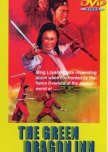
The righteous official upholding the law in this movie was played as stiffly and unemotionally as possibly by Yueh Hua, whose stony expression never changed. Fortunately, Lo Lieh swaggered onto the scene as an interested party, with a more compelling performance and kung fu. Polly Ling-Feng Shang-Kuan (yep, that's her whole stage name) popped in from time to time to shake things up with her sword and kung fu. This trusted trio bravely vowed to uphold the law in the face of overwhelming numbers.
With the exception of Polly's and Lo's, the fights felt overly staged at times, but were entertaining enough. The action was fairly non-stop. Oftentimes the story is overlooked, Green Dragon Inn's was simple but engrossing. This movie had a bad case of "run out of film" ending. If you watch a lot of martial arts movies, especially Shaw Brothers, you'll know what I'm talking about.
Green Dragon Inn had two problems that had nothing to do with the story or acting. In the version I watched the film had been ruthlessly cut to fit different screens. Much of the action, fighting and reaction shots were missing if they happened near the edges. This version was also dubbed. I'm pretty sure the same guy voiced all of the men's lines. As bad as dubbing is, in this situation, subbing would have been worse as the words would have been cutoff. I've seen movies where that happened and it was very frustrating. This movie is good enough with a famous enough cast to be remastered and restored to its former glory.
If you enjoy martial arts movies, especially from Taiwan, this is a good one to try. Even with the problems I mentioned, Green Dragon Inn was still a fun way to spend 90 minutes.
*As always, I grade these older niche movies on a curve.
Was this review helpful to you?
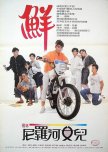
This review may contain spoilers
Hou Hsiao Hsien takes a look at a 1980's family living on the edge of Taipei's neon nights. At turns, frustrating, sympathetic, maddening, and understandable this fractured family is largely held together by the eldest daughter, Lin Hsiao Yang.Lin Hsiao Yang (Yang Lin) has a short temper, works at Kentucky Fried Chicken during the day and takes classes at night school. When she's not busy making money and trying to better her life, she hangs out with her friends and tries to steer her older brother and younger sister away from stealing. Their father pops in and out, usually when he needs help. A lottery playing grandpa drops by occasionally to deliver food from a squawky daughter-in-law and quirky bon mots.
Lin Hsiao Fang (Jack Kao), the only surviving brother, and his gang try to carve out their own territory by opening a shady restaurant. Unfortunately, one of his crew draws the wrong kind of attention from violent and vengeful men.
Daughter of the Nile's characters are never fully delved into with the possible exception of Hsiao Yang. The cast is large and at times unwieldy. Hou plops the audience down in a strange slice of life drama without explaining or showing us much of what the characters are feeling or thinking. Even when tragedy hits, it's kept at a distance, as are the characters' responses.
I can see and understand the craft that went into the making of Daughter of the Nile, but in the end, I found it largely impersonal and the performances flat. Yang Lin's portrayal of our only dim window into this world came across as shallow when it felt like there should have been more depth to this character caught in almost unswimmable currents. She dutifully empties her bank account to any man in need, without a thought to her own precarious situation. Most characters have few, if any lines, wandering in front of the camera to give some movement to a stagnant and untenable lifestyle.
Daughter of the Nile is an interesting social commentary of the plight of those living on the fringe in the mid-1980's. I only wish Hou had let us into his characters' motivations and feelings so that a real emotional connection could be made to help us understand their lives better.
Was this review helpful to you?
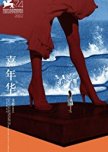
This review may contain spoilers
Writer/Director Vivian Qu delivers a caustic commentary of the treatment of women and young girls in China. Shown primarily from a female perspective she lays bare the inequality of the sexes by a society still focused on a girl's virginity as a primary virtue. And also casts a dark lens on the men who exploit that limited virtue for themselves.Two twelve-year-old girls are lured to a hotel by a powerful middle-aged man and raped. Mia, a young runaway working at the motel sees him break into the girls' room. Director Qu takes a risk in not having one protagonist, but two. One of the twelve-year-olds, Wen, was already suffering at school as a child of divorced parents. Qu largely focused on her experience as well as Mia's quandary of not wanting to help for fear of losing her job. Mia comes across as self-serving and hyper focused on her own survival, always one step away from homelessness. Wen must not only deal with her own experience but also her mother's response and the adults who should be protecting her but don't. The only two people seeking justice are Wen's father and her lawyer.
Warning! What follows may have spoilers...
The performances are spare but powerful. There are no histrionics, no sobbing uncontrollably and screaming. The girls and the lawyer know they are fighting a battle that will likely not be won, but keep moving forward, keep enduring, keep fighting.
Set against the backdrop of an ocean vacation town, with a giant statue of Marilyn Monroe, the seedy happenings were not done in the dark corners but in plain sight making it even more disturbing. It feels like Qu was able to shine a light without the censors cracking down because she might have been alluding to the Western influences of the objectification of women in the statue and possibly in all of the brides dressed in Western wedding gowns having their pictures taken on the beach as a source of the problems. But Western influences did not cause a powerful middle-aged man to rape two children. Or cause the corrupted police force and medical community to cover it up. Or cause a mother to blame her daughter for what happened. Or cause other parents to profit off of their daughter. Or leave a runaway without a safety net. Or cause an older girl to risk her health, fertility, and life to have a fake hymen implanted. Or cause a teacher to treat Wen as less than because her parents were divorced. These are societal failures for women and girls and Qu did not shy away from showing the toll they take.
Angels Wear White is a difficult movie to watch with no easy answers. It may cause despair and anger on the part of the viewer. But perhaps in giving an unflinching and unsentimental view it knocks down one more brick in the wall separating women and children (regardless of gender) from justice, justice lacking not just in China, but worldwide.
Was this review helpful to you?

This review may contain spoilers
A small neighborhood in Tokyo is turned upside down when two little boys take a vow of silence because they want a television set. Of course, that's not all that's going on with the adult neighbors. Each family unit is facing their own challenges whether retirement is nearing, or a father can't find a job, or when the gossip generated from the have and have nots tears at the fragile fabric of relationships held together by the traditional greeting of "good morning".The focus of the story is two little boys who visit a neighbor's house to watch sumo wrestling on their TV. The neighbors are deemed unseemly, read different, and the boys are forbidden from visiting them anymore. When the boys hold their ground demanding a television the father tells them to be quiet and they decide to take a vow of silence.
The father is afraid that having a television in the house will breed idiocy by drowning out small talk which is the "lubricant" of society. The boys view small talk as idiocy. And around and round they go. The boys' vow of silence creates ripples of discord in the neighborhood when they neglect the customary "good morning" setting up another wave of gossip.
You can see in the English lessons and television, the creeping American influence and Western pressure on the families. The television is not the only problem, a neighbor who buys a washing machine is judged for spending money on a convenience. The shunned family with the television feels compelled to move. The movie not only displays a generational conflict, but a cultural conflict as well.
The small talk the adults value so dearly where love declarations are made through a banal conversation about the weather, also bury resentments, envy and fears. No one questions drinking as a means of escape, or cruel gossiping.
Good Morning was bolstered by the young actors' sweet performances in their silent war. A spare, gently comedic slice of life film, showcasing a cast of well-developed minor characters dealing with everyday problems and a changing world was quite entertaining.
Was this review helpful to you?
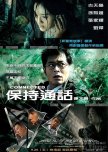
This review may contain spoilers
Connected was an emotional thriller from beginning to end. A remake of the US movie, Cellular, Connected put its own spin on the story. Louis Koo plays an inept debt collector who doesn't spend enough time with his son due to his job. His sister and his son are taking a flight out of Hong Kong and Bob, yes Bob, HAS to be there to send the boy off so as not to disappoint his son one more time. Being a thriller, we already know his trip to the airport is going to have challenges. Barbie Hsu as Grace Wong, throws him the mother of all challenges. She has been kidnapped by unknown villains and managed to use her engineering skills to make a damaged phone work, at least work enough to make a random call. And her one phone call is to timid Bob racing to see his son. Bring in disgraced police officer Detective Fai, played by Nick Cheung and the band is set to find its way together.
Koo connected with his character and managed to show Bob's development from coward to reluctant hero. Cheung's performance sold an otherwise weakly drawn character. Sadly, Hsu had to make the most out of being a damsel in distress, she was brilliant and resourceful, but still in distress and desperate for Bob's help. Liu Ye was able to make the cartoonishly evil Big Bad entertaining. Motorola should have gotten a supporting role as much as the phones had loving closeups.
Connected started and ended strong, the middle had a couple of slow spots, but overall, the pacing and nerve-racking action stayed pretty consistent. As with a lot of movies of this nature there was a great deal of predictability unless it was your first thriller. It didn't take much to connect the dots, thankfully, the trip between each turning point, even when implausible, kept the story moving at least at 3G speed. And along the way Grace and Bob, who were unable to see each other as they talked, managed to connect emotionally as well, a difficult task when both were facing death over and over.
I found Connected to be entertaining with strong performances. My only complaint, other than a few unbelievable bits is that it ran too long. It's worth giving a try, you can always hang up on it if it's not your thing, I kept Grace and Bob on the line until their conversation was over.
Was this review helpful to you?

This review may contain spoilers
The Korean peninsula hangs in the balance when a volcano on the Chinese border threatens to blow everything sky high! Luckily, for both Koreas, Ha Jung Woo and Lee Byung Hun are on the job!Ashfall is an entertaining disaster and spy thriller flick that doesn't try to take itself too seriously. It has all the characters one would expect in a catastrophic volcano movie. Ha Jung Woo plays The Hero who is supposed to be retiring from his EOD squad (Explosive Ordnance Disposal), instead he's leading a group into North Korea to steal a nuclear bomb to stop the volcano from making rubble out of Korea. Along the way, he has to pick up a North Korean agent/double agent/triple agent?, the always cagey Lee Byung Hun, as The Anti-Hero, who has been jailed in a NK prison. Easy peasy, right? Back home giving them support is, Ma Dong Seok, going against type as The Scientist Who Warned Them All and Jeon Hye Jin as the Politico Who Gets It. Bae Suzy also throws in with the scientist as The Hero's Resourceful Pregnant Wife.
Ashfall actually feels more like a spy thriller film with a cranky volcano in the background. Our plucky band has to deal with betrayals and comes under fire from various political powers that don't want them getting their hands on a nuclear bomb for ANY reason and disturbing the power balances regardless of the fact that both North and South Korea are about to be wiped off the map.
The action is non-stop, almost from the first frame and never lets up whether it's fire from the sky or fire fights. As with most disaster movies, you have to let go of reality and just enjoy the ride as nearly everything that happens is implausible.
The heart of the movie is the bromance that develops between The Hero and The Anti-Hero. Lee Byung Hun's character development and the friendship he grudgingly develops with Ha Jung Woo's character brings out the humanity this movie needed as everyone is moving at breakneck speed.
If you are expecting a rational approach to a cataclysmic tragedy in the making, not only for the Korean Peninsula but having an effect worldwide with scientists and world leaders joining hands and acting altruistically and quickly, you're going to be disappointed. If you are expecting vehicles, people, and the starring volcano to obey the rules of nature, you might want to skip this. This is an entertaining, if at times ridiculous, thriller disaster movie set on high drive with a little bit of heart to make it not instantly forgettable.
Was this review helpful to you?
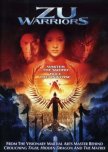
The acting was all serviceable. The problem is that there was no depth to the characters, no moment when we were able to see behind the frozen masks. Everyone was staid and emotionless making it very hard to care about any of them. Ekin Cheng's hair that magically blew in every scene had the most life of any character.
From beginning to end the CGI dominated the movie. Unfortunately, even for 2001, it wasn't very good. The cinematography was awful. The few sets that had any realism were also bad. Even the fight scenes, which did have some interesting moments were too often overpowered by the special effects. Very few scenes were not CGI enhanced which along with the unemotional acting made everything seem distant and cold.
The story had some good ideas and moments. Sadly, too often, it veered into an incoherent mess, seemingly unable to keep up with its own world building and mythology.
If a movie is going to take itself this seriously then it should be well thought out and give us characters to care about. Or it should have the decency to be so bad that it's good. Zu Warriors failed on both counts.
Was this review helpful to you?

This review may contain spoilers
Coming Home is a nuanced tale of love, forgiveness, guilt, and devotion. Gong Li and Chen Dao Ming give subtly emotional performances as the husband who returns home after being "re-educated" in a camp during the Cultural Revolution and the wife so traumatized by events that she no longer recognizes the man she has been waiting on for years.The film focuses on the three characters of this tragic family. Gong Li gives a heartbreaking portrayal of a woman with uneven mental and emotional capabilities, trapped in the past, and hiding a jarring sacrifice. Once, a school teacher, Yu now can barely function in her small gray world. Zhang Hui Wen takes daughter Dan Dan's emotional journey from self-centered teenager with no memory of her father to a mature young woman in a believable manner. Anchoring the acting and this family, is Chen Dao Ming's father Lu. Burdened with the guilt of having been torn from his family and seeing the wreckage upon his return, he resolutely and gently works to reunite the fragile relationships. Dao Ming's performance is free from over-sentimentality slowly drawing us in with the strength of his craft.
The settings are bleak and gray, focusing all the energy and attention on the actors. The music while adequate, once again, does nothing to distract from the performances and the telling of this sad story.
There are no easy answers for the problems the characters face. Often the best they can hope for is bittersweet acceptance in their resounding displays of love and loyalty.
Was this review helpful to you?
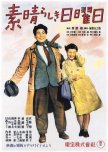
This review may contain spoilers
This is the kind of world where you need dreams the most, without them, it'd be too painful
One Wonderful Sunday was a combination of hope and despair, dreams and nightmares. The story followed two impoverished lovers in post-war Japan trying to stay together even though their financial situations were dire. Moments of happiness were quickly followed by the crushing blow of a sad reality.Yuzo and Masako meet up on Sundays, their one free day of the week. One Sunday, between the two of them they had only 35 yen, a tiny amount even in 1947. Depressed Yuzo was ready to give up on their date day, but bubbly Masako refused to lose out on their time together and pushed him into a happier mood. There were moments of levity as Yuzo played baseball with street children, as the lovers tried to buy tickets to Schubert's "'Unfinished Symphony", and finally a cup of coffee on a rainy night. All ended in disaster. And yet each time they would bolster each other into a better mood, refusing to give up on their seemingly unattainable dreams.
Masako's effervescent mood could quickly turn into nearly hysterical tears. Yuzo could go from sounding suicidal to leaping into an imaginary world as a symphony conductor. Yuzo's poverty left him feeling emasculated as he often declared his inability to provide for and protect Masako made him feel less like a man. Numasaki Isao and Nakakita Chieko gave solid performances covering a wealth of human emotions.
Post war Tokyo with ruined buildings in the background, street children, rampant black market scams, and many English signs hinted at the drastic change and upheaval the citizens were living through.
The movie alternated between a desperate realism and sweet optimism. This 'day in a life movie' focused almost entirely on the two main characters and the actors carried the story forward with strong performances. The two characters, who were often one mishap away from disaster, fought to cling to each other and their dreams.
Ultimately, for me, One Wonderful Sunday's story felt like Schubert's "Unfinished Symphony", romantic and unfinished. The audience is left wondering what will become of Yuzo and Masako, and like the young lovers, hoping for their happy ending.
Was this review helpful to you?

Go Go Gojira!
Go Go Gojira! As fast and as far away as you can from this ridiculous cut and paste movie!All Monsters Attack is actually about a young boy who is bullied at school and daydreams very vividly about Monster Island and his "friend" Minilla/Minya, quite possibly my least favorite character in the Godzillaverse and definitely the creepiest looking.
Robbers are on the loose and no one bothers to lock their doors, even when a child is by himself at night because the parents are working. What's the worst that can happen? Yeah, doesn't matter that it was 1969. These robbers are slightly more tame and inept than those in Home Alone, but it was still disturbing.
The little boy takes what he learns from Minilla/Minya from his daydreams to deal with the robbers and later the bullies. Unfortunately, the ending scene undoes all the anti-bullying rhetoric.
The monsters are all in the little boy's imagination and are just cut and pasted from previous movies. Hondo took a bunch of scenes like Godzilla batting a boulder around with Ebirah (the giant lobster) and added the little boy watching. Most of the chopped up scenes were from Son of Godzilla, Ebirah of the Deep, and a little from Destroy All Monsters. There was one new monster, Gabara, in short scenes to show that Minilla needed to stand up to the bully, just as the young boy needed to stand up to his bullies and the robbers. It pains me that this director from Godzilla 1954 had to stoop so low for either commercialism or to cheaply appeal to the little boy crowd. Rumored to have been scheduled to be the last Godzilla movie it made enough money that they would continue to milk that cow for a few more years targeting the younger audience before rebooting the big guy in 1984 leading into the Hesei era.
If you have children around the age of 8 and they are extremely sheltered, they might enjoy this movie. For adults, probably just for completionists.
Was this review helpful to you?
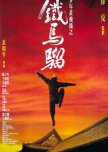
The story was simple. Dr. Yang and his trusty sidekick Miss Orchard tended to the sick during the day and at night robbed from the rich and gave to the poor and downtrodden. Dr. Yang was a cross between Robin Hood and Batman. In walked one of the Ten Tigers of Canton, Wong Kei Ying, and his teenage son Wong Fei Hung (played by Angie Tsang!). Initially at odds, it didn't take long for the two honorable men to recognize what was going on and what needed to be done. Along for the ride was Commissioner Gordon, I mean Master Fox, played by Yuen Shun Yee, who also provided a little comic relief. Team Iron Monkey was ready with fists, kicks, and righteous anger to take on any evil doers! They had to make a grandstand against a corrupt governor, disgraced, evil Shaolin monks, and the governor's boss who was a super powerful ex-monk. There was a little more to it, but that was the gist of the story.
The fights were fast, creative, and fun to watch. All of the good guys had time showing their kung fu stuff. When Yuen Woo Ping is in charge you know you are in for a treat. Donnie Yen has amazing footwork and it was highlighted in several scenes. The majority of this short movie involved fight scenes which would usually be a detriment for me, I enjoy at least some character development, but everyone on Team Iron Monkey was so quick, likeable, and graceful it didn't matter to me in this movie.
There were hints of romance, brief heartwarming moments and cringeless humor (for the most part). The story moved forward at the speed of Donnie's punches.
I scored this movie simply on the sheer joy I received from watching it. People who don't enjoy kung fu movies and wire fu might not enjoy it, but for those who do, this is definitely one to give a try.
Was this review helpful to you?

 54
54 188
188 11
11






















